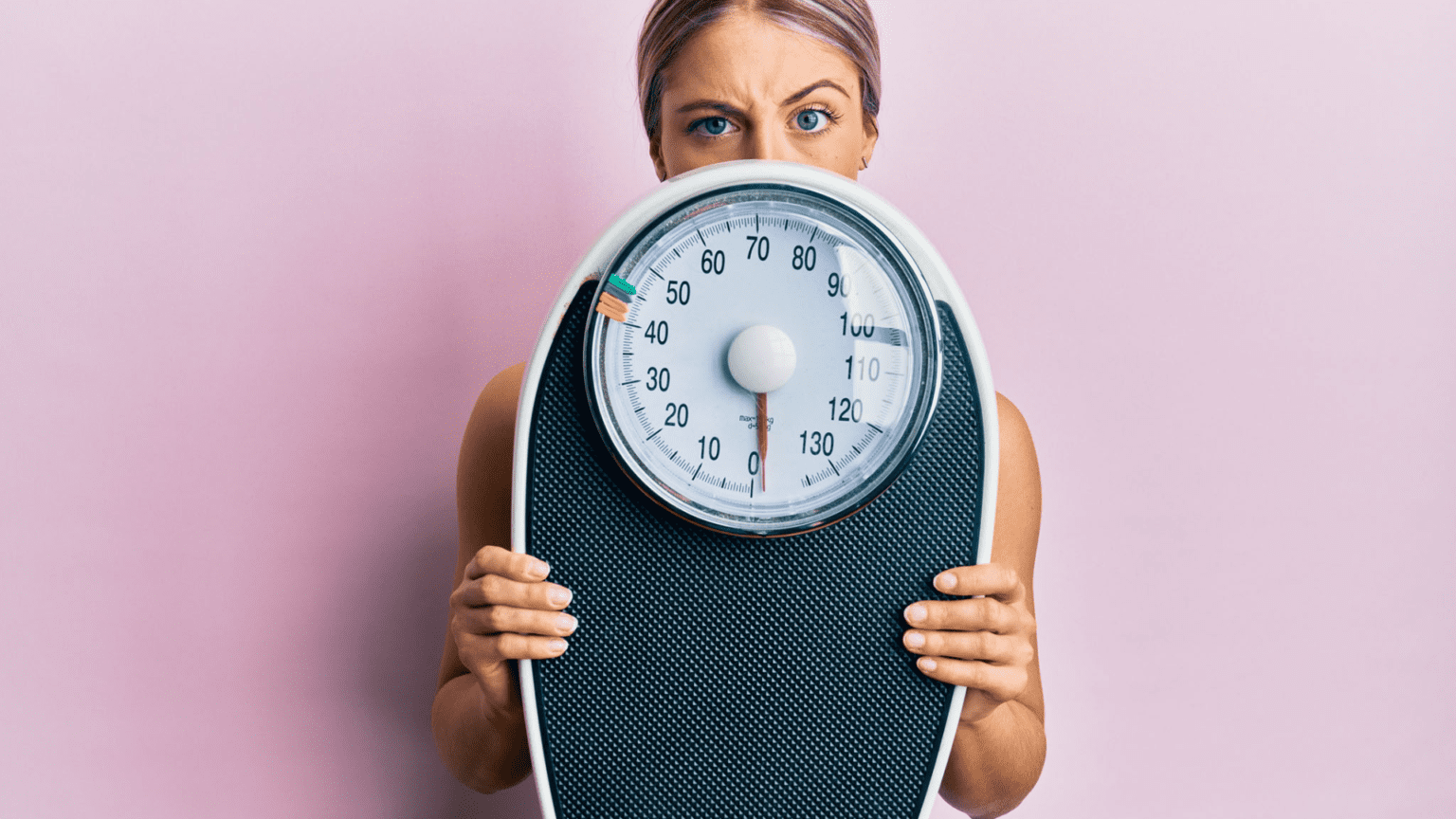If you’re experiencing menopause, you may be struggling with symptoms such as hot flashes, mood swings, and night sweats. These symptoms can make it challenging to maintain a healthy weight and lifestyle. However, making dietary changes and incorporating regular exercise can help alleviate these symptoms and improve your quality of life.
A menopause diet plan should include whole grains, lean protein, healthy fats, leafy greens, and cruciferous vegetables. The Mediterranean diet is a great option as it focuses on whole foods and healthy fats such as olive oil. Additionally, incorporating strength training and aerobic exercise can help manage blood sugar and insulin resistance, leading to a healthy weight and improved energy levels.
Creating a menopause-friendly diet plan and incorporating lifestyle changes such as regular exercise and meal timing can help manage menopause symptoms and improve bone health. While hormone therapy may be an option, a balanced diet and regular exercise are effective and natural ways to manage menopause symptoms and maintain a healthy weight.
Key Takeaways
- A menopause diet plan should include whole grains, lean protein, healthy fats, leafy greens, and cruciferous vegetables.
- Incorporating strength training and aerobic exercise can help manage blood sugar and insulin resistance, leading to a healthy weight and improved energy levels.
- Creating a menopause-friendly diet plan and incorporating lifestyle changes such as regular exercise and meal timing can help manage menopause symptoms and improve bone health.
Top 10 Diets to Help You Lose Weight During Menopause
Let’s get right to it! Here are 10 diets that many find helpful for weight management during menopause. Remember, it’s crucial to choose a diet that fits your lifestyle, dietary preferences, and health needs, and it’s always best to consult with a healthcare provider before starting any new diet plan.
- Mediterranean Diet: Emphasizes fruits, vegetables, whole grains, fish, and healthy fats like olive oil. It’s known for heart health benefits and may aid in weight management.
- DASH Diet: Originally developed to lower blood pressure, the Dietary Approaches to Stop Hypertension (DASH) diet emphasizes fruits, vegetables, whole grains, and lean proteins. It’s nutrient-rich and can help with weight loss.
- Plant-Based Diet: Focusing on foods primarily from plants, this diet includes not only fruits and vegetables but also nuts, seeds, oils, whole grains, legumes, and beans. It’s often effective for weight loss.
- Low-Carb Diet: Reducing carbohydrates can help manage insulin levels and aid in weight loss. This includes diets like the Atkins and ketogenic diets.
- Paleo Diet: Centers on foods presumed to be available to Paleolithic humans, like lean meats, fish, fruits, vegetables, nuts, and seeds. It excludes processed foods, grains, and dairy.
- Intermittent Fasting: Involves cycling between periods of eating and fasting. Common methods include the 16/8 method, where you fast for 16 hours and eat during an 8-hour window.
- Flexitarian Diet: A primarily vegetarian diet that allows for occasional meat and fish. It’s flexible and emphasizes plant-based foods while allowing for high-quality animal products.
- Volumetrics Diet: Focuses on foods that are low in calories but high in volume to help you feel full. This includes fruits, vegetables, whole grains, and lean proteins.
- Whole30 Diet: A 30-day diet that eliminates sugar, alcohol, grains, legumes, soy, and dairy. It’s a form of elimination diet to identify food sensitivities but can also lead to weight loss.
- The Mediterranean-DASH Intervention for Neurodegenerative Delay (MIND) Diet: This diet combines elements of the Mediterranean and DASH diets but specifically targets brain health. It emphasizes eating foods like berries, leafy green vegetables, nuts, whole grains, olive oil, and fish, while limiting red meat, butter, cheese, pastries, and fried or fast food. The MIND diet has been shown to support overall health and could aid in weight management, particularly beneficial during menopause when brain health is also a consideration.
Each of these diets has its own set of guidelines and focuses, so it’s important to find one that aligns with your personal health goals and is sustainable for you. Some women find that a combination of these approaches works best. Remember, the key is not just to lose weight, but to do so in a healthy, sustainable way that supports your overall well-being during menopause.
Nutrition and Menopause
Menopause is a natural process that happens to every woman as they age. During this time, hormonal changes can cause various symptoms like hot flashes, night sweats, mood swings, and weight gain. However, a healthy diet can help manage these symptoms and improve your overall quality of life.
A balanced diet that includes whole grains, healthy fats, calcium, fiber, soy products, phytoestrogens, vegetables and fruits can help you maintain a healthy weight and reduce the risk of chronic diseases such as high blood pressure, heart disease, and diabetes.
Whole grains are a great source of fiber and can help regulate blood sugar levels. Examples of whole grains include brown rice, quinoa, and whole-grain bread. Healthy fats like those found in olive oil, nuts, and fatty fish can help improve cholesterol levels and reduce the risk of heart disease.
Calcium is essential for bone health, and postmenopausal women are at a higher risk of osteoporosis. To get enough calcium, include dairy products, leafy greens, and fortified foods in your diet.
Soy products and phytoestrogens are known to help alleviate menopausal symptoms. Soy products like tofu, edamame, and soy milk are rich in phytoestrogens, which can mimic the effects of estrogen in the body.
Vegetables and fruits are packed with vitamins, minerals, and fiber. They can help you feel full and satisfied, while also providing essential nutrients for overall health.
In addition to a healthy diet, lifestyle changes such as regular exercise can also help manage menopausal symptoms. Aerobic exercise like brisk walking, swimming, or cycling can improve energy levels, reduce belly fat, and improve insulin resistance. Strength training can help maintain muscle mass and bone health.
Intermittent fasting and meal timing can also be effective in managing weight and improving blood glucose levels. The Galveston Diet, for example, is a popular menopause weight loss plan that focuses on whole foods, healthy fats, and plant proteins.
In summary, a healthy diet and lifestyle can help manage menopausal symptoms, maintain a healthy weight, and reduce the risk of chronic diseases. By incorporating whole grains, healthy fats, calcium, fiber, soy products, phytoestrogens, vegetables and fruits into your diet, and regular exercise into your routine, you can improve your overall health and wellbeing during the menopausal transition.
Weight Management During Menopause
As you go through menopause, you may experience hormonal changes that can lead to weight gain and difficulty managing your weight. However, there are steps you can take to maintain a healthy weight and reduce menopausal symptoms.
One of the most important aspects of weight management during menopause is a healthy diet. Eating a balanced diet that includes whole grains, lean protein, healthy fats, and plenty of fruits and vegetables can help you maintain a healthy weight and reduce menopausal symptoms such as hot flashes and mood swings. The Mediterranean diet, which emphasizes whole foods and healthy fats such as olive oil, is a good option for menopausal women looking to manage their weight and improve their overall health.
In addition to a healthy diet, regular exercise is also important for weight management during menopause. Aerobic exercise such as brisk walking can help you burn calories and improve your energy levels, while strength training can help you maintain muscle mass and bone health. Resistance training is also important for postmenopausal women, as it can help reduce the risk of osteoporosis.
Managing your blood sugar is another key component of weight management during menopause. Insulin resistance, which can occur during menopause, can make it more difficult to maintain a healthy weight. Eating a diet that is low in sugary foods and high in whole foods such as leafy greens and cruciferous vegetables can help you manage your blood sugar and maintain a healthy weight.
Finally, meal timing and intermittent fasting can also be effective strategies for weight management during menopause. Eating smaller, more frequent meals throughout the day can help you maintain stable blood glucose levels and avoid overeating, while intermittent fasting can help you consume fewer calories overall.
By making these lifestyle changes and focusing on a healthy diet and regular exercise, you can manage your weight and reduce menopausal symptoms, improving your overall quality of life.
Bone Health and Physical Activity
Maintaining bone health is essential for postmenopausal women. Regular exercise, including both strength training and aerobic exercise, can help prevent osteoporosis and maintain muscle mass.
Strength training exercises, such as weight lifting or resistance bands, can help increase bone density and prevent bone loss. Aim for at least two sessions per week, targeting major muscle groups such as the legs, arms, and core.
Aerobic exercise, such as brisk walking or cycling, can also help improve bone health by increasing bone density and reducing the risk of falls. Aim for at least 150 minutes of moderate-intensity aerobic exercise per week, or 75 minutes of vigorous-intensity exercise.
In addition to exercise, a healthy diet rich in calcium and vitamin D can also help maintain bone health. Incorporate whole foods such as leafy greens, cruciferous vegetables, and plant proteins into your meals.
It’s also important to maintain a healthy weight and avoid excess belly fat, which can increase the risk of osteoporosis and other health problems. Regular exercise can help you achieve a healthy weight and reduce your risk of chronic diseases such as high blood pressure and insulin resistance.
Incorporating healthy fats such as olive oil and fatty acids from fish can also help improve bone health and reduce inflammation. Avoid sugary foods and focus on nutrient-dense, whole foods to support bone health and overall quality of life during the menopausal transition.
Consider speaking with your healthcare provider about hormone therapy and other treatment options for menopausal symptoms that may be impacting your energy levels and ability to exercise regularly. With the right lifestyle changes and support, you can maintain bone health and enjoy a healthy, active lifestyle during and after menopause.
Creating a Menopause-Friendly Diet Plan
As you navigate through the menopausal transition, you may find that your body is changing in ways that make it difficult to maintain a healthy weight and lifestyle. However, creating a menopause-friendly diet plan can help you manage your symptoms, maintain a healthy weight, and improve your overall quality of life.
Incorporating Key Food Groups
When creating a menopause-friendly diet plan, it’s important to incorporate key food groups that can help you manage your symptoms. These food groups include lean protein, whole grains, healthy fats, leafy greens, cruciferous vegetables, and plant proteins.
Lean protein sources such as chicken, fish, and tofu can help you maintain muscle mass and keep you feeling full. Whole grains like quinoa, brown rice, and whole wheat bread can help regulate blood sugar and keep you feeling satisfied. Healthy fats like olive oil, avocado, and nuts can help reduce inflammation and improve cholesterol levels. Leafy greens and cruciferous vegetables like kale, spinach, broccoli, and cauliflower can provide essential vitamins and minerals. Plant proteins like beans, lentils, and chickpeas can help you meet your protein needs without consuming too much animal protein.
Understanding Dietary Impact
Understanding the impact of your diet on your body can help you make informed decisions about what to eat. Menopausal hormonal changes can lead to insulin resistance, which can make it difficult to maintain a healthy weight. Eating a balanced diet with enough protein, healthy fats, and fiber can help regulate blood glucose levels and improve insulin sensitivity.
Additionally, menopausal hormonal changes can increase the risk of high blood pressure and cholesterol. Eating a diet rich in whole foods like fruits, vegetables, and whole grains can help improve cholesterol levels and reduce the risk of high blood pressure.
Strategies for Meal Planning
When planning your meals, it’s important to consider meal timing and portion sizes. Intermittent fasting can be a helpful strategy for managing menopausal symptoms and reducing belly fat. However, it’s important to ensure that you are still consuming enough protein and nutrients throughout the day.
Incorporating strength training and aerobic exercise into your routine can also help you maintain a healthy weight and improve bone health. Brisk walking, resistance training, and other forms of exercise can help you maintain muscle mass and reduce the risk of loss of muscle mass.
Finally, when planning your meals, it’s important to consider your calorie intake and the quality of your food choices. Avoid sugary foods and processed foods, and focus on nutrient-dense, whole foods that can help you meet your nutritional needs and maintain a healthy weight.
By incorporating these strategies into your menopause-friendly diet plan, you can manage your symptoms, maintain a healthy weight, and improve your overall quality of life.
Lifestyle Changes for Menopause
Menopause is a natural process that marks the end of a woman’s reproductive years. However, it is often accompanied by a range of symptoms, including hot flashes, mood swings, night sweats, and weight gain. The good news is that making some lifestyle changes can help you manage these symptoms and improve your overall health and quality of life.
Exercise and Weight Loss
Regular exercise is essential for maintaining a healthy weight and preventing the loss of muscle mass that often occurs during menopause. Aim for at least 150 minutes of moderate-intensity aerobic exercise per week, such as brisk walking, cycling, or swimming. You should also include strength training exercises, such as lifting weights or using resistance bands, at least twice a week to help maintain muscle mass.
In addition to exercise, making dietary changes can also help with weight management during menopause. A balanced diet that includes plenty of whole grains, lean protein, healthy fats, and leafy greens can help you maintain a healthy weight and improve your overall health.
Complementary Approaches
There are several complementary approaches that can help manage menopause symptoms. For example, the Mediterranean diet, which emphasizes whole foods, healthy fats, and olive oil, has been shown to help reduce hot flashes and improve heart health. Intermittent fasting, which involves restricting calorie intake for certain periods, may also help with weight management and insulin resistance.
Managing Symptoms and Health Risks
In addition to weight management, making lifestyle changes can also help manage other menopause symptoms and reduce the risk of health problems such as heart disease, stress, diabetes, and cancer. For example, regular exercise can help improve energy levels, reduce stress, and lower blood pressure.
Other lifestyle changes that can help manage menopause symptoms include:
- Getting enough sleep: Aim for 7-8 hours of sleep per night to help improve energy levels and reduce the risk of mood swings and other symptoms.
- Avoiding sugary foods: Sugary foods can cause blood glucose levels to spike, which can lead to hot flashes and other symptoms.
- Eating more plant proteins: Plant proteins, such as those found in beans, lentils, and nuts, can help maintain muscle mass and reduce the risk of heart disease.
- Meal timing: Eating smaller, more frequent meals throughout the day can help regulate blood sugar and reduce the risk of hot flashes and other symptoms.
Making lifestyle changes such as regular exercise, a healthy diet, and stress reduction techniques can help manage menopause symptoms and improve overall health and quality of life. Talk to your healthcare provider about additional strategies, such as hormone therapy, that may help manage your symptoms.
Menopause is a natural part of aging that can bring about hormonal changes and a variety of symptoms, including hot flashes, mood swings, night sweats, and weight gain. However, by making healthy lifestyle changes, such as following a balanced diet, engaging in regular exercise, and managing stress, you can improve your quality of life during the menopausal transition.
A menopause diet plan that includes whole grains, lean protein, healthy fats, leafy greens, and cruciferous vegetables can help you maintain a healthy weight, reduce belly fat, and support bone health. The Mediterranean diet, which emphasizes whole foods and healthy fats like olive oil, has also been shown to be effective in reducing menopausal symptoms and improving insulin resistance.
Regular exercise, including aerobic exercise and strength training, can help you maintain muscle mass, improve energy levels, and reduce the risk of high blood pressure and other health conditions. Intermittent fasting and meal timing can also be effective strategies for weight management and blood glucose control.
In addition to dietary changes and exercise, managing stress and getting enough sleep are also important for maintaining a healthy lifestyle during menopause. Hormone therapy may also be an option for some women, but it is important to discuss the risks and benefits with your healthcare provider.
Overall, by making small, gradual changes to your diet and lifestyle, you can reduce menopausal symptoms and improve your overall health and well-being.
Frequently Asked Questions
What are the top foods to include in a menopause-friendly diet for weight loss?
Including whole foods in your diet is essential for weight loss during menopause. Whole grains, leafy greens, and cruciferous vegetables are excellent sources of fiber, vitamins, and minerals. Plant proteins such as beans, lentils, and nuts are also great choices. Healthy fats, such as those found in olive oil and fatty fish, can help improve insulin resistance and reduce inflammation. Additionally, consuming enough protein is essential to maintain muscle mass, which can decrease during menopause.
How can whole grains and healthy fats benefit postmenopausal women?
Whole grains and healthy fats are beneficial for postmenopausal women because they can help regulate blood sugar levels and reduce belly fat. Whole grains are a great source of fiber, which can help you feel fuller for longer periods and reduce the risk of heart disease. Healthy fats, such as those found in olive oil and fatty fish, can help improve insulin resistance, which can reduce the risk of type 2 diabetes.
What lifestyle changes can help manage menopausal symptoms and promote weight loss?
Lifestyle changes such as regular exercise, a balanced diet, and stress reduction techniques can help manage menopausal symptoms and promote weight loss. Aerobic exercise, such as brisk walking or cycling, can help reduce hot flashes and improve energy levels. Strength training can help maintain muscle mass and bone health. Additionally, reducing stress through techniques such as meditation or yoga can help improve mood swings and overall quality of life.
Can the Mediterranean diet with olive oil and lean protein help during menopause?
The Mediterranean diet, which is rich in whole grains, lean protein, and healthy fats such as olive oil, can help reduce menopausal symptoms and promote weight loss. Studies have shown that following a Mediterranean diet can help reduce hot flashes, improve insulin resistance, and reduce the risk of heart disease.
What types of exercise are most effective for weight management in menopausal women?
A combination of aerobic exercise and strength training is most effective for weight management in menopausal women. Aerobic exercise, such as brisk walking or cycling, can help burn calories and reduce hot flashes. Strength training can help maintain muscle mass and bone health, which can decrease during menopause.
How does calorie intake and meal timing influence weight gain during menopause?
Calorie intake and meal timing can significantly influence weight gain during menopause. Consuming fewer calories than you burn can help you lose weight. Additionally, intermittent fasting can be an effective way to reduce calorie intake and promote weight loss. Meal timing is also essential, as eating late at night can disrupt sleep and increase insulin resistance, which can contribute to weight gain.












